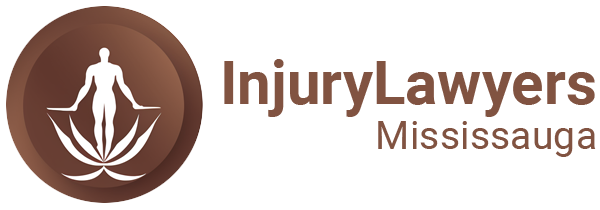In the labyrinthine corridors of legal systems worldwide, the pursuit of justice is often a complex and daunting endeavor. It is a journey that requires not only a deep understanding of the intricate network of laws and regulations but also a strategic approach to maneuvering through the often-bewildering process of litigation. This section delves into the multifaceted realm of seeking judicial remedy, providing a roadmap for those who find themselves at the crossroads of legal conflict.
Embarking on this journey, individuals and entities alike must grapple with the initial steps of identifying the appropriate avenues for their grievances. Whether it be a dispute over contractual obligations, a tortious claim for damages, or an appeal against administrative decisions, the first milestone on this path involves pinpointing the correct legal channels to initiate the process of rectification. This foundational stage is crucial, as a misstep can lead to wasted resources and prolonged frustration.
Under the magnifying glass of this overview, we will explore the various instruments and mechanisms available for individuals to navigate their way through the legal maze. From the drafting of pleadings to the invocation of alternative dispute resolution methods, our examination will shed light on the multitude of strategies that can be employed to expedite the journey towards a fair and just outcome. Furthermore, we will scrutinize the role of legal professionals in this process, highlighting their expertise in steering clients through the turbulent waters of the judicial system.
As we unravel the complexities of legal recourse, our aim is to empower the reader with a comprehensive understanding of the landscape. By providing a detailed analysis of the procedural and substantive aspects of litigation, this article aspires to equip those in pursuit of justice with the tools necessary to traverse the path with confidence and clarity.
Don’t settle for less when it comes to legal representation for your personal injury case. Choose the premier mississauga personal injury lawyer, Ontario, for dedicated advocacy and support.
The Role of a Personal Injury Specialist in Mississauga
Within the intricate landscape of seeking recompense for harm incurred, the significance of a proficient advocate cannot be understated. For residents of Mississauga, grappling with the complexities of personal injury litigation, a specialized counselor serves as a beacon of guidance and support. These legal professionals, deeply entrenched in the nuances of personal injury law, are instrumental in the pursuit of justice and compensation for victims, ensuring that their voices are heard amidst the cacophony of legal proceedings.
A personal injury specialist in Mississauga is akin to a compass, expertly navigating the often-treacherous waters of insurance claims, litigation, and negotiation. They are not merely experts in the legal arena but also empathetic intermediaries, bridging the gap between the injured and the redress they rightfully deserve. Their role transcends the mere execution of legal formalities; it embodies a commitment to fighting for the rights of those who have been wronged, whether through accidents, medical negligence, or wrongful deaths.
| Expertise Area | Key Responsibilities |
|---|---|
| Legal Navigation | Guiding clients through the legal labyrinth, from initial consultation to settlement or verdict. |
| Claim Preparation | Crafting thorough and compelling claims that resonate with the courts and insurance entities. |
| Negotiation | Advocating for optimal compensation, adeptly negotiating terms that reflect the client’s best interests. |
| Client Advocacy | Ensuring the client’s narrative is authentically conveyed and their rights are zealously guarded. |
| Case Management | Managing all facets of the case, from evidence collection to witness coordination, to build a robust defense. |
In essence, a personal injury specialist in Mississauga is not just a legal practitioner but a defender of the injured, a trustee of justice, and a relentless crusader for the fair treatment of their clients. Their multifaceted role is a testament to the critical part they play in the journey towards obtaining lawful remedy for the aggrieved.
Leveraging Local Expertise for Optimal Outcomes
In the pursuit of a satisfactory resolution to disputes or grievances, harnessing the proficiency of local authorities and professionals can be instrumental in achieving favorable results. This section delves into the strategic advantages of engaging with experts who possess in-depth knowledge of the regional legal system, customs, and practices, as well as the resources and connections necessary to facilitate a smooth journey toward rectifying injustices.
The essence of this approach lies in the understanding that each jurisdiction has its unique nuances and complexities that can significantly impact the course and outcome of a legal matter. By tapping into the wealth of experience and insights offered by local professionals, one can navigate through the labyrinth of laws and regulations more effectively. This not only saves time and effort but also enhances the chances of securing a remedy that aligns with the specific circumstances and cultural context of the dispute.
Moreover, the alignment of interests and the establishment of a strong rapport with local figures can pave the way for more collaborative and innovative problem-solving. This partnership can lead to the identification of untapped avenues of recourse and the development of strategies that resonate with the local mindset, thereby increasing the efficacy of the redressal process.
In conclusion, the integration of local wisdom and expertise into the quest for legal vindication is a wise strategy that can yield substantial benefits. It is through this synergy that one can optimize the path to a fair and just outcome, ensuring that the pursuit of justice is not only efficient but also resonant with the very fabric of the community in which it is sought.
Understanding the Importance of Specialized Knowledge
In the intricate maze of obtaining rightful recompense through lawful channels, the significance of possessing a comprehensive grasp of specialized legal knowledge cannot be overstated. This esoteric realm of understanding is pivotal for individuals navigating the complex labyrinth of legal systems, as it equips them with the requisite acumen to effectively advocate for their rights and pursue legal recourse.
Specialized knowledge bestows numerous advantages upon those who seek justice, as outlined in the following points:
Enhanced Acuity in Identification of Legal Issues:By acquiring in-depth knowledge of a specific legal domain, one can swiftly recognize pertinent matters and dissect intricate legal questions more adeptly.
Strategic Decision-Making:An individual with specialized knowledge possesses a more profound understanding of the legal landscape, enabling them to make astute decisions regarding the most effective course of action.
Optimized Results:When armed with expert knowledge, individuals are better positioned to anticipate potential obstacles and develop comprehensive strategies to maximize the likelihood of favorable outcomes.
Credibility and Persuasiveness:Possessing specialized knowledge bolsters one’s credibility, both in the eyes of the legal system and other parties involved, thereby enhancing the persuasiveness of their arguments and claims.
In summary, the acquisition of specialized knowledge is of paramount importance for those seeking to navigate the multifaceted and often bewildering world of legal redress. By developing a nuanced understanding of the relevant legal principles and procedures, individuals can significantly enhance their chances of securing just outcomes and effectively advocating for their rights.
Essential Steps in the Personal Injury Claim Process
The pursuit of reparation for harm endured due to an incident requires adherence to a structured legal approach. The following section delineates the fundamental procedures involved in initiating and concluding a successful claim for personal injury damages.
- Establishing Culpability and Documentation: Before embarking on the legal journey, it is imperative to ascertain the responsible party and document all relevant evidence. This entails gathering comprehensive records such as medical reports, accident reports, and witness accounts that substantiate the harm caused and the negligence of the liable individual or entity.
- Engaging Professional Counsel: Next, it is advisable to enlist the services of an adept legal representative who specializes in personal injury matters. Such a professional will possess the expertise to navigate the complexities of the legal system, advocate for your interests, and ensure that your claim is handled competently from the outset.
- Preliminary Negotiations: Often, the process commences with an attempt to resolve the matter outside of court through negotiations with the opposing party’s insurers or legal representatives. This stage may involve the presentation of a demand letter outlining the extent of damages and the compensation sought, followed by exchange of offers until a mutual agreement is reached or negotiations break down.
- Commencement of Legal Proceedings: If the dispute cannot be settled harmoniously, the case will proceed to litigation. This involves filing a formal complaint with the appropriate court, serving notice to the defendant, and adhering to the procedural requirements of the legal system governing the jurisdiction.
- Pretrial Procedures: Prior to the trial, a series of pretrial procedures take place, including discovery, where both parties exchange relevant evidence and information. Additionally, motions may be filed to address procedural matters or seek summary judgment in favor of one party.
- Trial: The trial marks the culmination of the legal process, where the merits of the case are presented before a judge or jury. Each party will present their arguments, call witnesses, and cross-examine the other side’s witnesses in an attempt to sway the decision in their favor.
- Post-Trial Motions and Appeals: Following the verdict, either party may file post-trial motions to contest the outcome or seek a new trial. If the judgment is appealed, the case may be reviewed by a higher court to reassess the legal rulings and, potentially, reverse the decision.
- Enforcement of Judgment and Collection: A successful claim concludes with the enforcement of the judgment and the collection of the awarded compensation. This may involve working with the court to garnish wages, seize assets, or otherwise compel the responsible party to fulfill their financial obligations as dictated by the court’s decision.
By understanding and following these pivotal steps, individuals can navigate the intricate landscape of personal injury claims with greater confidence, aiming to secure a fair and just resolution for the harm they have suffered.
Initial Consultation: Charting a Course of Action
In the intricate tapestry of seeking remedy through formal channels, the initial consultation serves as the compass that orients the individual toward a viable strategy. This pivotal juncture is where the seeker of justice embarks on a journey with a seasoned navigator, sharing the intricacies of their predicament in a confidential setting. The dialogue that unfolds is a symphony of information exchange, where the individual’s narrative is harmonized with the legal practitioner’s expertise, aiming to discern the most effective approach to address the grievance.
The consultation is a crucible, a melting pot where the raw materials of the legal dispute are examined for their potential in crafting a robust case. It is a time for candid discussion, where the seeker must unveil the facts as they stand, devoid of embellishment, to allow the legal advisor to assess the merits and pitfalls of the situation. This collaborative effort is crucial in etching out a roadmap that may lead through the labyrinth of legal procedures, aiming to reach a just resolution.
Below is a table that outlines the key elements typically addressed during an initial consultation:
| Element | Purpose | Key Considerations |
|---|---|---|
| Fact Gathering | To compile a comprehensive background of the issue | Chronological order, relevance, completeness |
| Legal Analysis | To evaluate the strength and viability of the case | Applicable laws, precedents, potential defenses |
| Strategy Formulation | To devise an actionable plan based on the analysis | Tactics, timelines, resource allocation |
| Cost Projections | To estimate the financial commitment required | Fees, expenses, contingencies |
| Client Education | To inform the client about the legal process and expectations | Understanding, transparency, realistic goals |
The initial consultation is not merely an exchange of information but a subtle dance of trust and strategy. It is a space where the seeker’s advocates sift through the complexities of the case, searching for the threads that will weave together a compelling argument. This critical phase sets the tone for the legal odyssey that lies ahead, ensuring that the seeker is equipped with the knowledge and confidence to traverse the path toward their rightful recompense.
Documentation and Evidence Collection: Building a Solid Case
In the intricate tapestry of securing legal recourse, assembling a robust foundation for one’s argument is paramount. The meticulous assembly of documentation and collection of evidence serve as the bedrock upon which a formidable case is erected. This process transcends mere paperwork; it is a strategic endeavor that harnesses the power of tangible proof to illuminate the path toward a favorable outcome.
The first step in this meticulous process is the gathering of written records and associated materials. These may encompass a diverse array of items, including correspondence, contracts, and reports that directly pertain to the matter at hand. Each piece of documentation contributes to a coherent narrative, painting a vivid picture of the events and circumstances under scrutiny. It is essential to ensure the accuracy and completeness of these documents, as they will form the basis against which assertions are tested and determinations are made.
Concurrently, the assembly of tangible evidence is a critical component of the framework. This may include physical objects, photographs, and electronic data that support the claims being made. The selection and presentation of this evidence require astute discernment, as the admissibility and relevance of each item must be carefully considered. A well-curated collection of evidence can reinforce the credibility of the case and bolster the persuasiveness of the arguments advanced.
Moreover, the preservation of the integrity of both documentation and evidence is of utmost importance. Mishandling or alteration can compromise the reliability of these materials and cast doubt upon the entire case. Adherence to strict protocols and the employment of secure storage methods are indispensable in maintaining the veracity of the assembled body of proof.
In summation, the construction of a formidable legal claim hinges on the diligent and strategic accumulation of documentation and evidence. This multifaceted task demands precision, scrutiny, and adherence to ethical standards. By meticulously building a solid case through the systematic collection and presentation of compelling documentation and evidence, one can navigate the complex terrain of legal recourse with confidence and resilience.
Maximizing Compensation: Strategies for a Successful Settlement
In the complex landscape of securing rightful remuneration, a myriad of approaches and methodologies can be employed to enhance the likelihood of a favorable resolution. This segment delves into the strategic measures that can be undertaken to amplify the potential for an advantageous outcome in the pursuit of financial redress.
At the core of this endeavor lies a meticulous examination of both the legal framework and the particulars of the case at hand. It is imperative to construct a robust narrative that underscores the merits of the claim, ensuring that all relevant facts and supporting evidence are presented in a compelling and coherent manner. This entails not only a thorough understanding of the applicable statutes and precedents but also the adeptness to weave these elements into a persuasive argument that resonates with the adjudicating authority.
Moreover, the importance of a comprehensive pre-settlement evaluation cannot be overstated. This involves a candid assessment of the strengths and weaknesses of the claim, as well as an estimation of the potential damages that could be awarded. Armed with this knowledge, one can then engage in informed negotiations, setting realistic expectations and making strategic concessions where prudent. The ability to accurately gauge the value of the case is often the key to unlocking a higher settlement figure.
Additionally, the selection of the right legal representation is a pivotal factor in the quest for maximum compensation. A seasoned attorney with a proven track record in similar cases can provide invaluable guidance and advocacy. Their expertise in navigating the nuances of the legal system can mean the difference between a meager and a substantial settlement. It is crucial to engage an advocate who is not only skilled in the technical aspects of litigation but also possesses the acumen to leverage negotiation tactics that can sway the balance in favor of the claimant.
Finally, the dynamic nature of settlement negotiations demands flexibility and adaptability. As the dialogue progresses, the landscape may shift, and new opportunities for leverage may emerge. It is essential to remain vigilant and responsive to these changes, recalibrating the approach as necessary to capitalize on favorable developments. By maintaining a nimble stance and a keen eye on the evolving situation, one can optimize the chances of securing a settlement that reflects the true worth of the claim.
In summary, the path to maximizing compensation in legal settlements is multifaceted and intricate. It necessitates a blend of rigorous preparation, strategic negotiation, and adaptable execution. By adhering to these principles and leveraging the expertise of seasoned legal professionals, one can significantly enhance the prospects of achieving a settlement that delivers the deserved recompense.
The Power of Persuasive Advocacy in Negotiations
In the intricate landscape of dispute resolution, the adeptness of a persuasive advocate is pivotal to achieving favorable outcomes. This section delves into the potency of compelling advocacy during negotiations, shedding light on its role in shaping the trajectory of settlements and the course of rightful recovery. At the heart of this discourse lies the exploration of effective communication strategies, the importance of understanding the opposing party’s perspective, and the skillful application of evidence and logic to sway outcomes in one’s favor.
To harness the full potential of persuasive advocacy, it is essential to master several key elements:
- Empathetic Engagement: A sympathetic approach allows advocates to connect with stakeholders on a deeper level, fostering a climate of trust and understanding that can be leveraged to influence the negotiation process.
- Strategic Advocacy: Employing a well-considered plan, advocates can navigate the negotiation terrain with precision, targeting the most effective points of leverage and anticipating the opposition’s moves.
- Compelling Communication: The art of articulating arguments with clarity and conviction is paramount. By weaving a narrative that resonates with the audience, advocates can evoke empathy and bolster their position.
- Evidence-Based Persuasion: Backing assertions with solid evidence enhances credibility and provides a firm foundation for negotiations. It is through the meticulous presentation of facts that advocates can sway opinions and influence decisions.
- Adaptive Tactics: The ability to fluidly adjust strategies in response to the evolving dynamics of negotiations is a hallmark of persuasive advocacy. This nimbleness ensures that advocates remain agile and can effectively counter the opposition’s maneuvers.
In the context of attaining just reparation, persuasive advocacy serves as a potent instrument. By employing these strategies, advocates can not only navigate the complexities of legal redress but also illuminate the path to equitable resolutions. The power of persuasive advocacy lies in its capacity to transform the negotiation table into a platform for constructive dialogue, where the potential for a mutually beneficial outcome is maximized.
In summary, the influence of persuasive advocacy in negotiations is profound, shaping not just the immediate settlement but also the longer-term relationships between parties. By embracing the principles of empathetic engagement, strategic advocacy, compelling communication, evidence-based persuasion, and adaptive tactics, advocates can wield their influence to champion the pursuit of fair and just outcomes.
4. “Question-Answer”
What is legal redress and why is it important?
Legal redress refers to the process of seeking justice and compensation through legal means when an individual’s rights have been violated or they have suffered harm due to another party’s actions. It is crucial because it provides a structured method for addressing grievances, upholding fairness, and ensuring that those responsible for wrongdoing are held accountable, thereby promoting a just and equitable society.
What steps should I take if I believe I have a case for legal redress?
If you suspect you have a case for legal redress, the first step is to gather all relevant evidence, including documents, correspondence, and any other materials that can support your claim. Next, consult with a qualified attorney who specializes in the area of law relevant to your case. They will help you understand your legal options, draft a formal complaint if necessary, and guide you through the process of filing a lawsuit or seeking an alternative dispute resolution method.
What are the potential costs and time commitment associated with pursuing legal redress?
The costs and time commitment of pursuing legal redress can vary significantly depending on the complexity of the case, the chosen legal strategy, and the jurisdiction. Legal fees, court costs, and potential expert witness fees can be substantial, and it is not uncommon for cases to last several months or even years. However, many attorneys work on a contingency fee basis, meaning they only receive payment if they win the case, and some jurisdictions offer fee waivers or reduced fees for low-income individuals.
Are there alternative methods to resolving disputes besides going to court?
Yes, there are several alternative dispute resolution methods that can be more efficient and less costly than going to court. These include mediation, where a neutral third party helps the parties involved reach a mutually acceptable agreement, and arbitration, where a neutral arbitrator (or panel of arbitrators) listens to both sides and makes a binding decision on the dispute. These methods can be particularly useful in cases where parties wish to maintain a working relationship or prefer to avoid the publicity of a court trial.
How can I find a qualified attorney to help me navigate the path to legal redress?
Finding a qualified attorney involves researching and evaluating potential candidates based on their experience, reputation, and areas of expertise. Start by seeking recommendations from friends, family, or professional contacts who have had positive experiences with attorneys in the past. Additionally, you can consult online directories, such as the American Bar Association’s Find Legal Help, or local bar associations for referrals. Finally, schedule initial consultations with potential candidates to discuss your case and evaluate whether their approach and communication style align with your needs and expectations.

Laura Chen is a dedicated Personal Injury Lawyer with a specific focus on Motor Vehicle Accidents and Workplace Injuries. An alumna of McGill University, where she received her LL.M., Laura has become a respected figure in the Canadian legal sector over her fifteen-year career. She has a proven record of aggressively advocating for her clients’ rights, often achieving significant financial settlements in challenging injury cases. Laura’s detailed understanding of accident and labor laws, coupled with her strategic acumen, has resulted in a high success rate in both settlements and court verdicts. Laura’s passion for law is matched by her commitment to her clients, as she works tirelessly to ensure they receive the justice they deserve.


